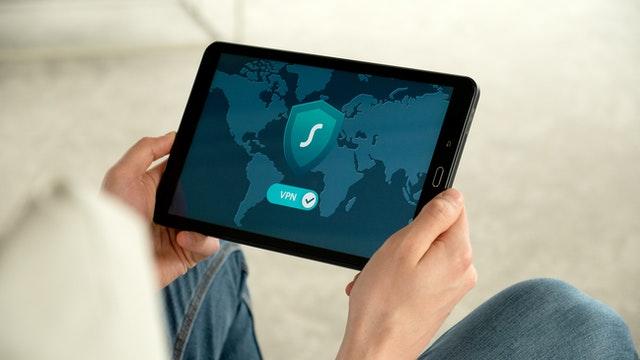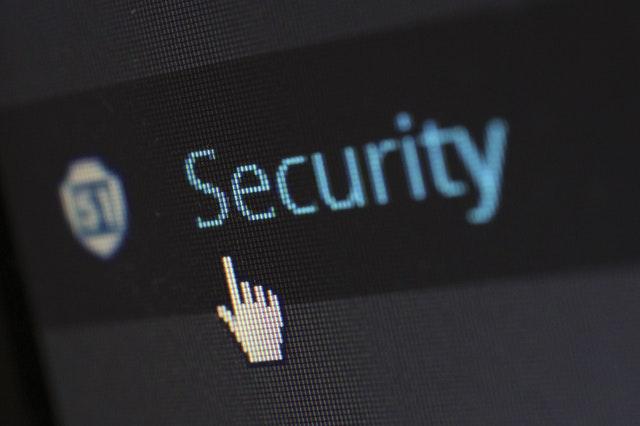The internet is a haven of information and entertainment. It is also full of predators, scammers, bullies, and hackers. The internet is crawling with malware and viruses that can take down even the most secure websites.
College students need to be extra careful when using it. There are several ways hackers can access your information online. As a student, you are more vulnerable to these tactics since you spend a lot of time on the internet studying and researching. Here are some of the ways students can use the internet safely.

https://www.pexels.com/photo/security-logo-60504/
Use strong passwords
Weak passwords leave bank accounts and other important pieces of information online vulnerable to hackers. Students need to create secure passwords to keep their information safe. While creating a password, make sure it is unique and not anything a third party can guess.
Try and use more than 10 characters, with a mixture of uppercase, lowercase, numbers, and symbols. We are all guilty of reusing passwords across different platforms. This is another way people can easily access private or important information. Once they obtain one password, everything else is at risk. Students should learn to use different passwords on different accounts to keep their information safe.
Beware of phishing tactics
Students use the internet for several purposes, including finding help with their assignments. Several sites write academic papers for pay, but EduBirdie is the most secure and legit site. They can find experts on this site who write papers for money and ensure they are on the most secure writing site. Students should practice cyber security practices when accessing websites. When I need online writers to write papers for me, I head to this popular site only as I don’t trust any other site that writes essays for money.
Websites can also be used by hackers to install viruses into your device. They could steal financial details like bank statements, bank account details, and passwords to credit cards. Ensure you have an antivirus installed on your device to warn you when entering such websites.

https://www.pexels.com/photo/person-holding-a-tablet-3949101/
Do not use unsecured Wi-Fi sources
When in college, several places offer free Wi-Fi. Public Wi-Fi is often not encrypted, and anyone can access it. Public Wi-Fi carries several risks that could have serious consequences. If hackers happen to access your data via a compromised Wi-Fi network, you are bound to face a rough couple of days.
Hackers can access your login credentials which they can use to access your finances. They can also use them to access your social media accounts. Here they can post defamatory content that could give you a bad reputation. When using Wi-Fi in a public place, ensure that it is encrypted.
Encrypted Wi-Fi will ensure your information is protected from hackers, viruses, and other online threats.
Safe use of social media
The youth are the main users of social media platforms. Most college students fall under this age bracket. College students are most active on social platforms like Instagram and YouTube. Although the internet provides a great avenue for connection and communication, it is also open to the wrong kinds of people. The internet cannot control who has access to it.
There are a ton of cyber bullies, trolls, scammers, and all forms of bad people on the internet. Friends and family can similarly use the internet to harass or blackmail you. They can do this by threatening to post explicit, private photos or information. College students need to be extra careful who they interact with on social media.
Beware of popular scams
Scammers are everywhere on social media platforms. If you are new to social media or not aware of these tactics used by scammers, you can fall for these scams, which may cost you a lot of money or important details. There are several running scams on the internet. On Instagram, random people will send you a direct message or tag you claiming you have won an iPhone 13 or other similar gadgets.
They will ask you to provide your credit or debit card information. They will finally ask you to pay a considerable amount of money to cover shipping costs. The amount may seem small compared to the cost of the phone, and most people will fall for it. In the long run, you will not get this phone and lose money to scammers.
Conclusion
College students make up the largest percentage of internet users. This makes them most vulnerable to cyber security threats. It is important to create awareness of cyber security among students. It helps sensitize them to cyber threats like scamming, hacking, and bullying. College students need to practice safe browsing to avoid encountering any of the above-mentioned. These are some important tips to help them prevent cyberattacks and threats.
Author’s Bio
Joel Strachan works for an AI company that runs several education websites in the technology field and grammar checking tools. He is a content writer with the company and also a freelancer academic paper writer. His free time is for listening to tech podcasts, doing yoga and watching movies.
